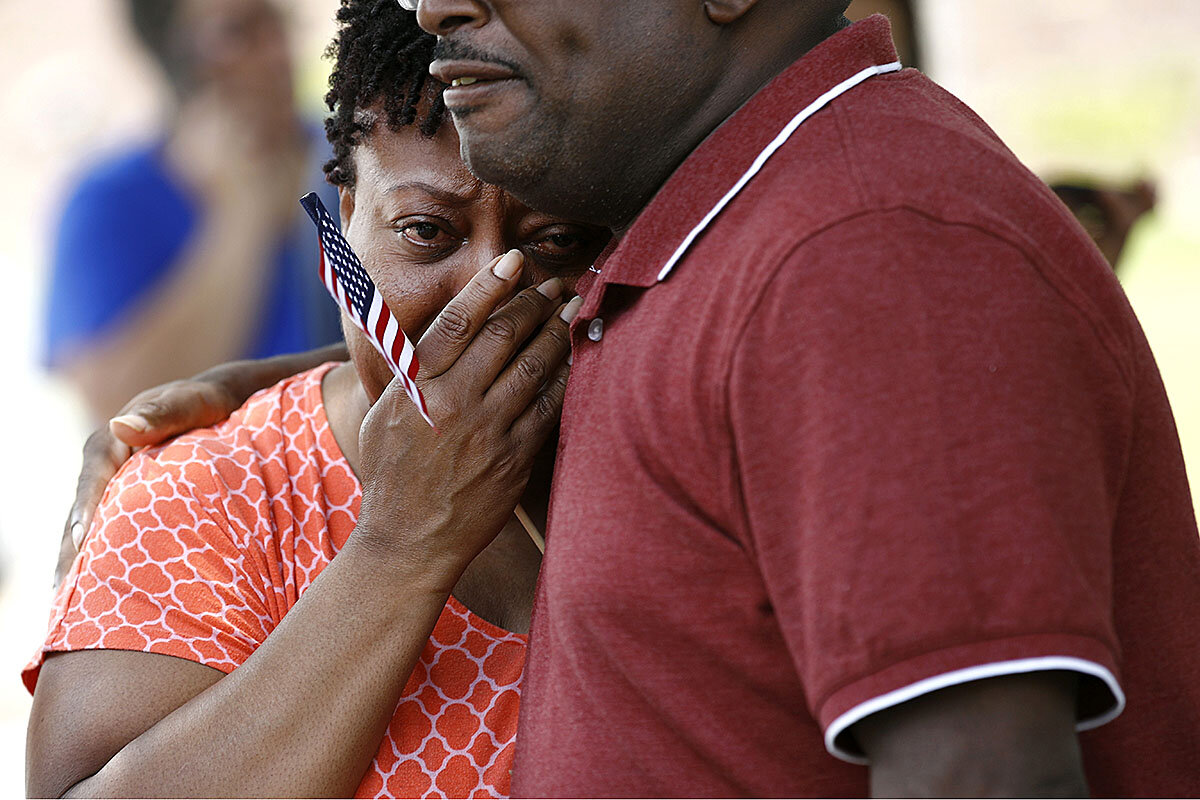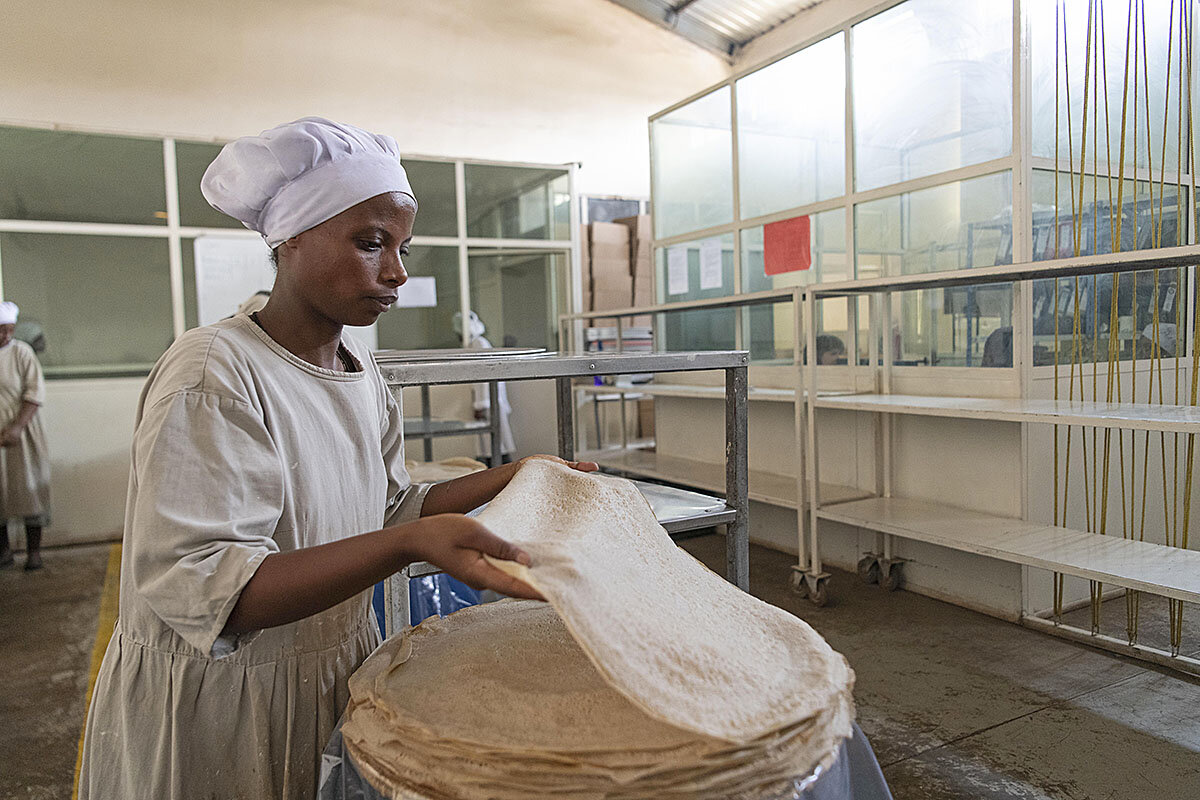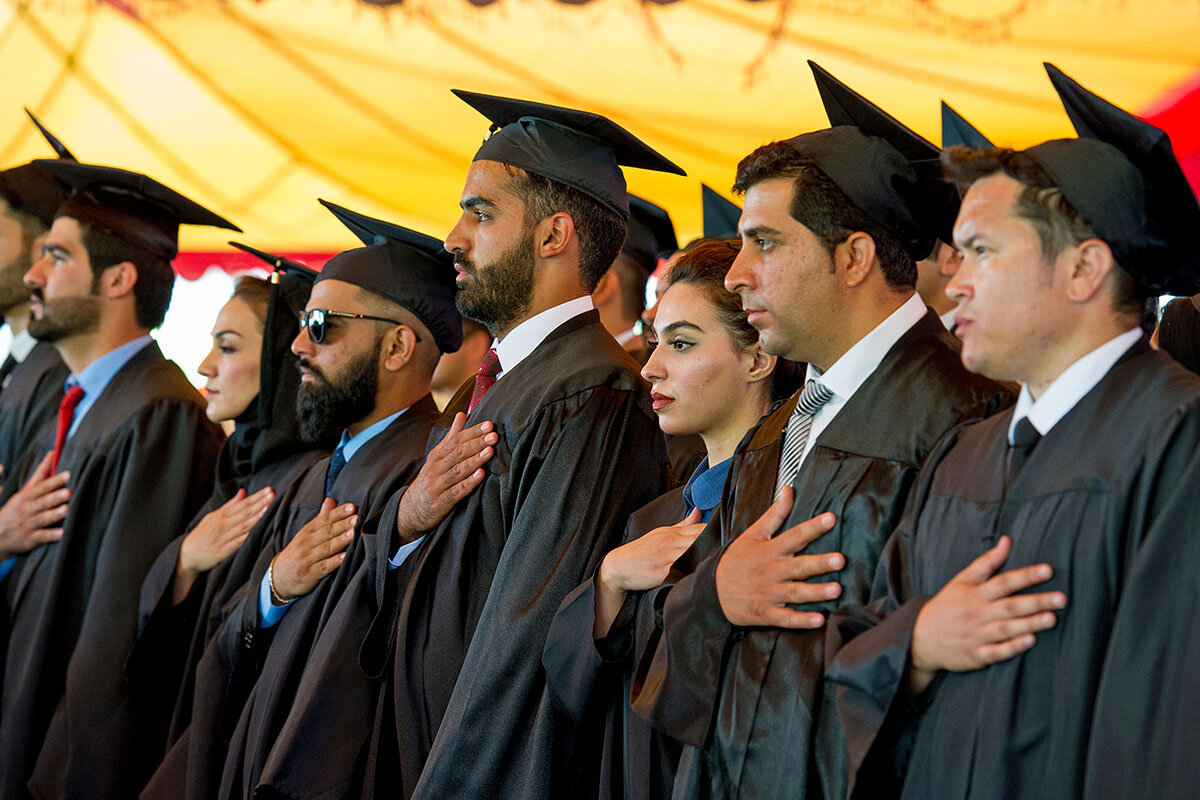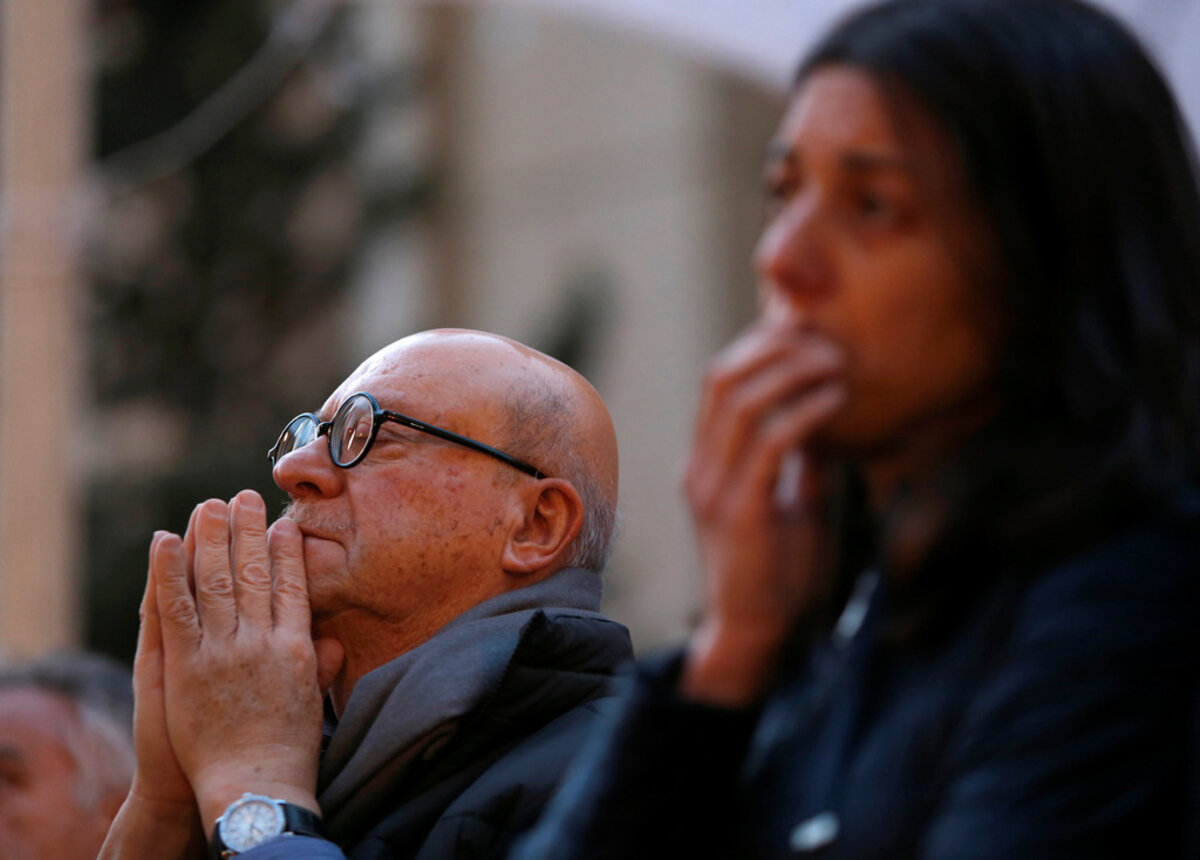Life after trauma is not always what people assume. “Somehow when we survive, many people actually find that they have gained clarity and have a purpose,” one Las Vegas shooting survivor says.
Monitor Daily Podcast
- Follow us:
- Apple Podcasts
- Spotify
- RSS Feed
- Download
 Peter Grier
Peter Grier
“Pray and dance.”
Faith Michael, a defender for the Nigeria women’s national soccer team, says that’s what she does before every game, according to The New York Times.
She’ll be doing a lot of that in coming days, as the Women’s World Cup kicks off today in France.
It will be the biggest event in women’s soccer history. Total attendance is expected to top 1 million.
Such attention may help the sport change for the better, World Cup teams hope. It’s not so much about the game itself as about respect for the place of women’s soccer in a global context.
Some countries have already made serious progress. In England, the fully pro Women’s Super League has wrapped up its first season.
Women’s national team players in Australia and Ireland have made progress fighting for higher pay and better treatment. The U.S. team has filed a federal lawsuit seeking equal pay.
But in many developing parts of the world – even soccer hotbeds like South America – women’s soccer still gets much less money and attention than men’s.
Growing the women’s game where it is already big will eventually erode barriers where it isn’t, believes FIFA, soccer’s global governing body. Leading up to today’s first World Cup game, FIFA hosted a convention of sports and political leaders to discuss development of the women’s game and the positive impact it can have on female players at all levels.
“We need to understand the power that we have in this room and with this sport to change the lives of so many girls. Do not underestimate it,” former U.S. star Mia Hamm told the meeting. “I am a living example of what football can do.”
Now to our five stories for today, which include an examination of what healing looks like after a community deals with an event as traumatic as the Virginia Beach shooting, and a preview of the new Smithsonian hall of fossils, which has a surprisingly hopeful perspective on climate change.










